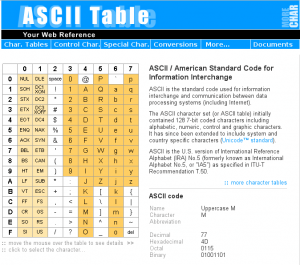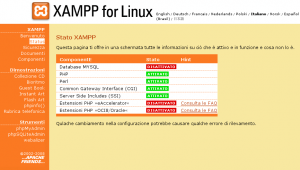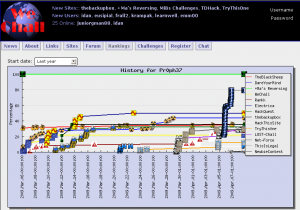Hacking Challenge: challenge hackers in a skill game
[Foreword: this is article number 2 of the new "hacks" series. Read here if you want to know more about this]
[Foreword 2: if you know me, you also know I usually don't use the term "hacker" lightly. I'm sure you will understand what I mean here without being offended, whether you are a (real) hacker or not ;-)]
In the latest years, also thanks to the fact that website creation has become a much easier and quicker task, the number of hacking challenges on the Internet has considerably increased. These websites usually consist of a series of riddles or puzzles, published by increasing difficulty; solving one of these riddles you can gain points or advance to higher levels where you can access some new resources inside the website. Riddles and puzzles, of course, are "tailored for hackers": the knowledge required to participate, in fact, covers a little bit of everything technical, from scripting languages to cryptography, from reverse engineering to Internet search techniques. Participating to these challenges is a very interesting experience, not only because it is instructive, but also because it allows you to network with other people with your same passion. And, after all, some narcisism doesn't hurt: most of the hacking challenges you can find around the Web also have a "hall of fame", inside which you can see the (nick)names of the hackers who reached the highest scores.

Figure 1: The website http://ascii-table.com provides an ASCII table with dec, hex, octal, and binary codes, together with a collection of tools to convert text in different formats. You'll be surprised at how much this can be useful for you.
Create new riddles
If participating to a hacking challenge as a player is really funny, letting people play your own challenge could be really awesome. Becoming "riddlers" is not particularly complicated from a technical viewpoint: everything you need is some time, together with lots of creativity.
The main idea is that the final answer to a riddle could always be summarized as a simple string of text: in the easiest case it could be a name, in the most complex it could become a (more or less long) sequence of apparently random characters. The easiest way to check if the string is right is to use it as part of the URL of the page containing the following riddle. You can ask users to manually type this URL inside their browsers or use some Javascript code to automatically generate it: if the answer is right the correct page will be loaded, otherwise the Web server will return an error message. More advanced methods to check riddle solutions involve the use of scripting languages (such as Perl, PHP, or Python) and passwords saved inside a file or a database.
The tools
Whatever your choice is, you will not have many problems in finding the Web space and the software you need to create your own hacking challenge. Actually, there are currently lots of free Web space providers available and many of them also give you the chance to run scripts or store your data inside databases. You can also practice by creating a test environment locally on your PC, using ready LAMP (Linux+Apache+PHP+MySQL) packages. For instance, XAMPP (http://www.apachefriends.org/it/xampp.html) is an Apache distribution that comes together with PHP, MySQL, and Perl: the installation procedure has been designed to be as simple as possible and in few minutes you'll be able to start experimenting with your site.

Figure 2: XAMPP is one of the quickest way to run a LAMP servers on your Windoze, Linux, or Mac computer.
Find inspiration
Before you build a new riddle you'd better gather some information, checking what has already been created and what in general you like most. The Web is full of hacking challenges you might get some inspiration from, however finding the one which might be more interesting for you is a riddle on its own. To help you in the choice, instead of searching for challenges on classical search engines you might better start from some more specific websites. Hackergames.net is a "historical" portal for this genre, with links to about 150 different challenges: for each of them you can find details such as the main language, a description, and a list of reviews written by users themselves. We Chall, instead, despite having links to less challenges, has introduced a whole new API-like communication system between websites; using that, it can aggregate scores from different challenges, allowing users to be listed into a global ranking which spans over many sites. Last but not least, keep an eye on all those sites (such as TheBlackSheep) that accept contributions from their own users, as they give you the chance to see your riddles published without requiring you to develop and maintain a website on your own.

Figure 3: We Chall plots, for each user, all the progresses done in every challenge she has subscribed to.
Hacker psychology
The main rule in a hacking challenge worth this name is that there are no rules. If a solution to your riddle is not the one you had envisioned, well... that's a good thing: it means that who found it is more creative than you! Finding alternative ways to reach one goal is a very common hacker approach, so you shouldn't be surprised if, trying to find the solutions to your riddles, somebody tries to exploit your system vulnerabilities. So, here are some suggestions to keep your challenge as funny as possible, both for your players and you:
- check how secure your scripts are, in particular against the most common types of exploit (such as SQL injection, if you save data inside a database);
- do not rely on "security by obscurity", making the security of your website depend on the secrecy of some pieces of information: give for granted the fact that they will be discovered sooner or later and act accordingly. For instance, do not keep all the solutions to your riddles in clear but rather encrypt them, so that whoever finds them will have to sweat a little more to get to the next level;
- one of the simplest, but at the same time effective way to crack a short password is bruteforcing. So, use secret strings which are long and difficult to bruteforce, and make it clear for everyone: this way, users will avoid bruteforce finding it unuseful (and save a lot of your bandwidth);
- if you are good with programming, you can intentionally leave some bugs in the system so that users will be able to exploit them enabling new features inside your site, such as a secret forum or a list of hidden resources: there's no better incentive for hackers than the possibility of shaping a system according to their own will!
- if you receive a message from a user warning you about a vulnerability, consider it as a great privilege: instead of defacing you, they have sent you a constructive contribute! Try to learn more from that, correct the bug and document everything, so that all the other users will be able to learn something new from your error and from the ability of who discovered it. Finally, challenge everyone to find others: this will make the game even more interesting.